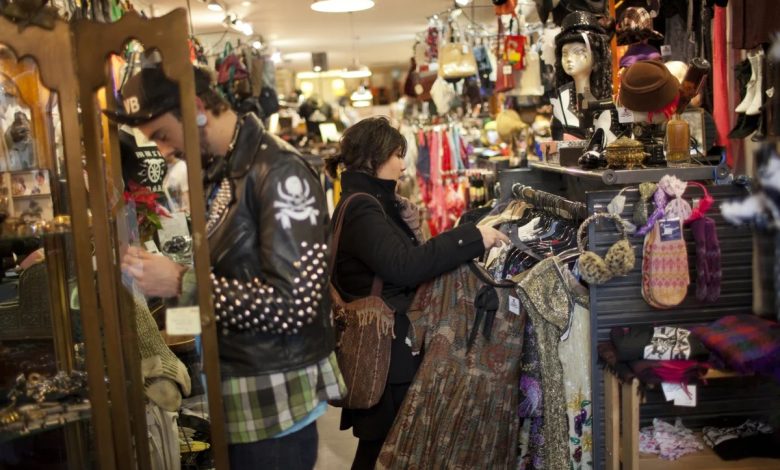Do Arab and Muslim Communities in the U.S. Embrace the Secondhand Clothing Market?
From affordability to sustainability, Arab and Muslim families actively engage with the U.S. resale clothing market while balancing faith, culture, and modern consumer trends.

In the United States, the secondhand clothing market has grown into a multi-billion-dollar industry. Thrift shops, consignment stores, donation centers, and online resale platforms such as Goodwill, Salvation Army, Poshmark, and ThredUp attract millions of customers every year. Among those who use this market are many Arab and Muslim communities, who participate in it for both economic and cultural reasons.
Affordability and Economic Benefits
For many Arab and Muslim immigrant families—especially those newly arrived in the U.S.—secondhand clothing shops are a practical solution. Thrift stores offer affordable options for children’s clothing, household essentials, and winter coats, which can be expensive when purchased brand new. This is particularly helpful for families with multiple children, where clothing costs add up quickly.

Cultural and Religious Considerations
Some Muslim families are selective when shopping secondhand due to religious guidelines. Concerns may arise about whether the clothes were previously used in non-Islamic rituals or associated with prohibited activities. However, Islamic scholars generally agree that wearing used clothing is permissible, provided the clothes are clean and modest. This makes resale markets an acceptable and even sustainable option for Muslims in America.
The Role of Arab and Muslim Entrepreneurs
Interestingly, Arab and Muslim immigrants are not only consumers in this market but also key business owners. Many have established resale and export businesses, buying used clothing in bulk from U.S. donation centers and shipping them to markets in Africa, the Middle East, and Asia. In cities like Houston, Detroit, and New Jersey, Palestinian, Yemeni, and Egyptian entrepreneurs have built thriving companies in this sector, creating jobs and supporting both local and international markets.
Sustainability and Social Responsibility
Arab and Muslim communities in the U.S. also see secondhand shopping as a way to contribute to environmental sustainability. By reusing and recycling clothing, families help reduce textile waste—an issue of growing concern in American society. This aligns with Islamic principles of avoiding waste (الإسراف) and practicing modest consumption.
Youth and Fashion Trends
Younger Arab and Muslim Americans are increasingly drawn to thrift shopping as a lifestyle choice. Many see it as a way to express individuality, find unique styles, and embrace eco-friendly fashion. This generational shift has normalized secondhand clothing, making it less about financial need and more about conscious consumerism.

Community Charities and Donations
Mosques and Islamic centers often organize clothing drives in partnership with secondhand markets. Donations are collected during Ramadan or Eid seasons, with clothes redistributed to needy families or sold at charity thrift shops. This strengthens community bonds while supporting low-income households.



